 |
 |
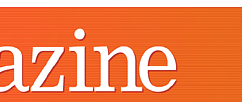 |
 |
 |
 |
|
|
||||
FROM THE EDITOR FEATURE COLUMNS
|
Contributors |
|||
 |
Jane
Bottomley
Jane Bottomley has taught EFL in Spain, France, Hungary, and the Czech Republic. She has also worked as a lexicographer on the Cambridge International Dictionary of English. She currently teaches EFL and ESP at the universities of Manchester and Salford, and works as an editor and writer of EFL materials.
|
|||
| Adam
Kilgarriff
Adam is Senior Research Fellow at the Information Technology Research Institute (ITRI) at the University of Brighton. Before joining ITRI, Adam worked for two years as a computational linguist with Longman’s dictionary department, where he organised the shape of their dictionary database and corpus resources for lexicography. Adam is a leading authority on the interface between lexicography and language technology and has published extensively in both areas. He has worked with several dictionary publishers and is currently President of the Lexicons Special Interest Group of the Association for Computational Linguistics. He has taught various courses and tutorials, including one on ‘lexicography for computationalists’, with Michael Rundell, at two major Language Technology conferences in 1999. You can find out more about Adam’s work and research interests on this webpage: www.itri.bton.ac.uk/~Adam.Kilgarriff
|
||||
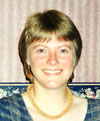 |
Kerry
Maxwell
Kerry has a first degree in computational linguistics and an MA in theoretical linguistics from the University of Manchester, specialising in syntactic theory. For several years she worked as a researcher at Manchester and Essex universities, where in connection with European projects on machine translation, she was involved in computational lexicography, co-ordinating research in computational descriptions of compounds and collocations, and presenting her work in various international academic contexts. In 1993 she joined Cambridge University Press as a lexicographer/editor and grammar consultant, and worked on a large number of Cambridge learners’ dictionaries, including the English Pronouncing Dictionary, the Cambridge International Dictionary of Phrasal Verbs and the Cambridge Learner’s Dictionary in print and CD-ROM versions. In June 2001 Kerry moved to York where she now works as a freelance editor/lexicographer and is involved in a range of dictionary and grammar projects.
|
|||
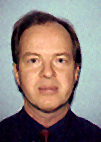 |
Howard
Middle
Howard Middle started his ELT publishing career at Macmillan in marketing in the mid 70s, prior to moving to Hodder and Stoughton as ELT editor, before settling at Longman in 1980, where he remained until 1999. He specialised in ESP and Business English and developed a range of innovative print and video materials, prior to taking on wider publishing management roles. He is now working as a freelance ELT publishing consultant and project manager, as well as a specialist ELT authors’ agent. With his Greek wife Hara, he has just taken on the role of Coordinator in Greece for Trinity College London’s ESOL exams.
|
|||
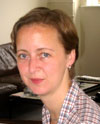 |
Diane
Nicholls
I don’t know how or when I became a lexicographer, though I think I have always been a linguist. My first degree, in Russian and French at the University of Reading led on to a postgraduate diploma in technical and specialized translation from the Polytechnic of Central London. A long spell of working as a translator, freelance and in-house, brought me to the realization that my passion for languages lay in the individual words themselves rather than in any finished documents I might produce and that translating, while a great discipline, would never allow me the time to ‘enjoy’ the words. I returned to academic study and an Mlitt in Slavonic Studies at Cambridge University. There I spent my time analysing and enjoying the language and style of the short stories of Anton Chekhov and wondering how I would ever manage to make a living using my language skills. Freelance work at Cambridge University Press provided the answer and my first non-user experience of dictionaries. It was through my work on False Friends for the Cambridge International Dictionary of English that I came into contact with the Acquilex project – an international computational lexicography project on multilingual lexical databases. Two years of working as a research assistant on Acquilex provided me with an excellent apprenticeship and finally sealed my fate (in career terms). Since the end of the Acquilex project in 1995 I have worked as a freelance linguist/lexicographer and revelled in the variety and flexibility this role offers. I have worked on highly commercial software development projects as far away as Silicon Valley in California, on academic research projects closer to home and in Hong Kong and the US and on a variety of dictionary publishing projects, including learner corpora, learners’ and native-speaker dictionaries and thesauruses (CUP, Bloomsbury, OUP, Macmillan). Among other things, I seem to have found a niche in developing and executing categorization and coding systems and can usually be found wading up to my neck in words, trying to marshal them into some sort of order while secretly admiring their slipperiness. Writing articles for the MED resource site provides me with an opportunity to get a few things off my linguistic chest and express some of my admiration for the things that words can do and the problems they can cause their users. I live in Hackney, London with my husband, Rory.
|
|||
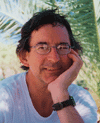 |
Michael
Rundell
I have been a lexicographer since 1980, following a short (and not very glorious) career as an academic then as an English language teacher. I was Managing Editor at Longman Dictionaries for ten years (1984–1994), and was responsible for several major dictionary projects there, including the Longman Dictionary of Contemporary English (1987 and 1995 editions), and the Longman Language Activator (1993). Since 1998, I have been a lexicographic consultant for Bloomsbury Publishing plc, who planned and wrote the Macmillan English Dictionary for Macmillan. As well as developing and editing dictionaries, I’ve been very involved in the design and collection of several English corpora, including the British National Corpus. I am also interested in computational tools for retrieving data from corpora, and their use in dictionary-making. I have had a long involvement in teaching lexicography and training lexicographers. Throughout the 1990s, I taught on courses at the University of Exeter. More recently, I have been working in partnership with Sue Atkins and Adam Kilgarriff (as the "Lexicography MasterClass") to provide training workshops in lexicography and lexical computing, in venues such as South Africa, the US, and especially the University of Brighton, where I am an Honorary Fellow. Our "Lexicom" workshop (www.itri.brighton.ac.uk/lexicom) is now an annual event. A new MSc programme in lexical computing and lexicography will be launched in Brighton in 2002 (www.itri.brighton.ac.uk/courses/MScLex). I have written numerous papers on corpus-based pedagogical lexicography, and I also write a regular column on aspects of corpora in language learning for the Pilgrims’ "webzine" Humanizing Language Teaching (www.hltmag.co.uk). Apart from writing dictionaries, I train regularly in T’ai Chi, I’m trying to learn Spanish, and I am active in local politics (as a member of an environmental group opposing inappropriate development in Canterbury, where I live). I also like movies and watching (but not playing) cricket, and wrote The Dictionary of Cricket (OUP) in 1995. My wife Maggy is a writer and editor. My son Raphael is 22 and works in the music business in London (as well as moonlighting as a DJ), and my daughter Jess is 17, studying for A levels and thinking of doing philosophy at university. Dictionaries have improved enormously in the last ten years, but I’m convinced there is still plenty of scope for making them even better – and this is why working with dictionaries is always so interesting and challenging. As the father of modern computing, Alan Turing, once said: ‘We can only see a short distance ahead, but we can see plenty there that needs to be done.’
|
|||
| Meet
the Editor
|
||||
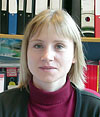 |
Kati
Sule
Kati was born in Hungary. She studied English Language and Literature at the University of Szeged in south-east Hungary and also completed an ELT degree, writing her dissertation on the role of monolingual dictionaries in ELT. She taught English as a foreign language in Hungary and briefly in the Netherlands. Kati moved to the UK in 1998 and has worked as an ELT editor since 1999. She has been involved in the Macmillan English Dictionary project, focusing on the illustrations in the dictionary, and was editor of the Macmillan English Dictionary Workbook. She has also worked on the CD-ROM edition of MED and is one of the editors of the Macmillan English Dictionary resource site.
|
|||
| Cover
illustration by Julian Mosedale Cover photo by PhotoDisc © Getty Images Graphic design by Florencia Döuek |
||||
|
|
||||